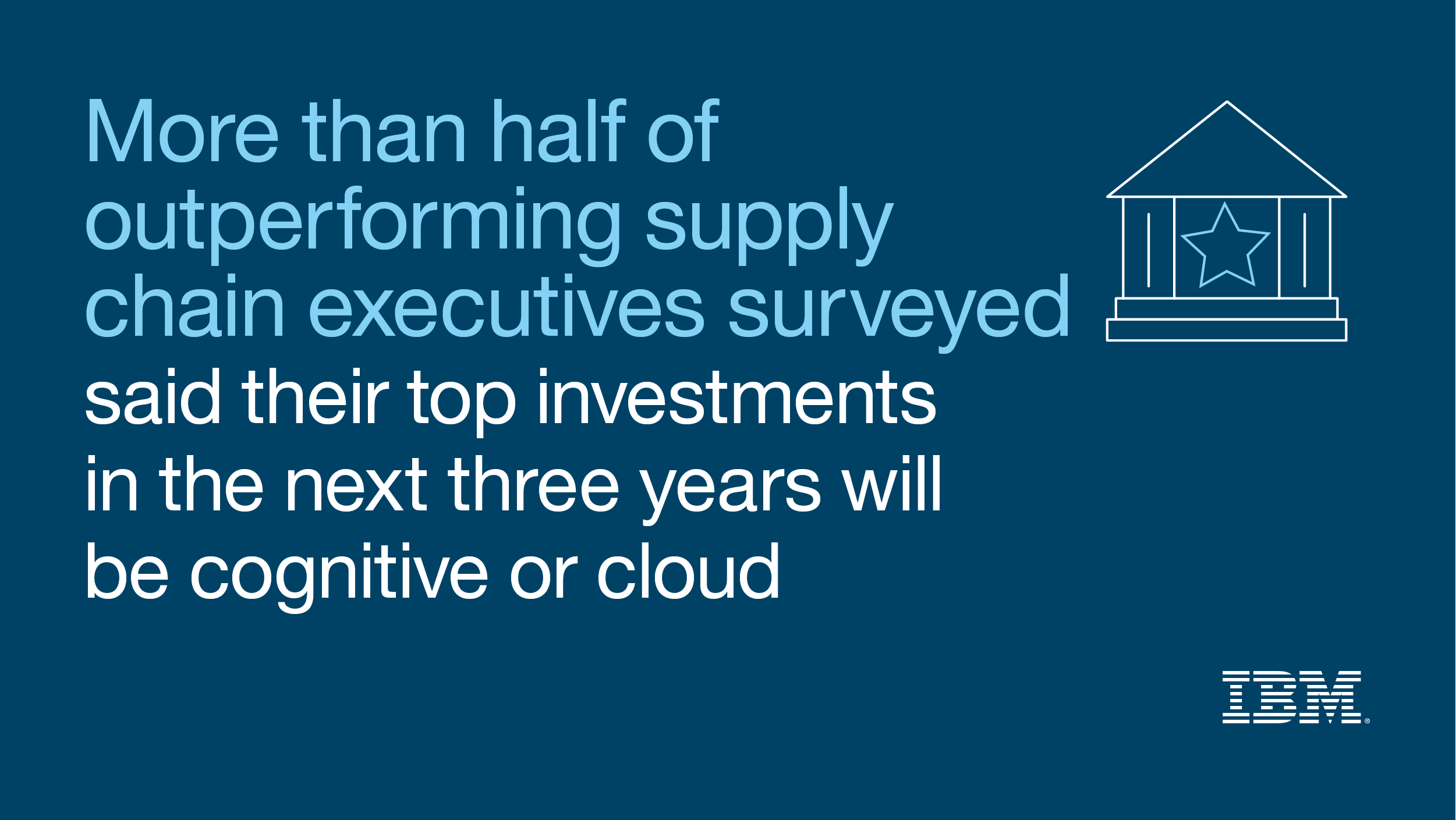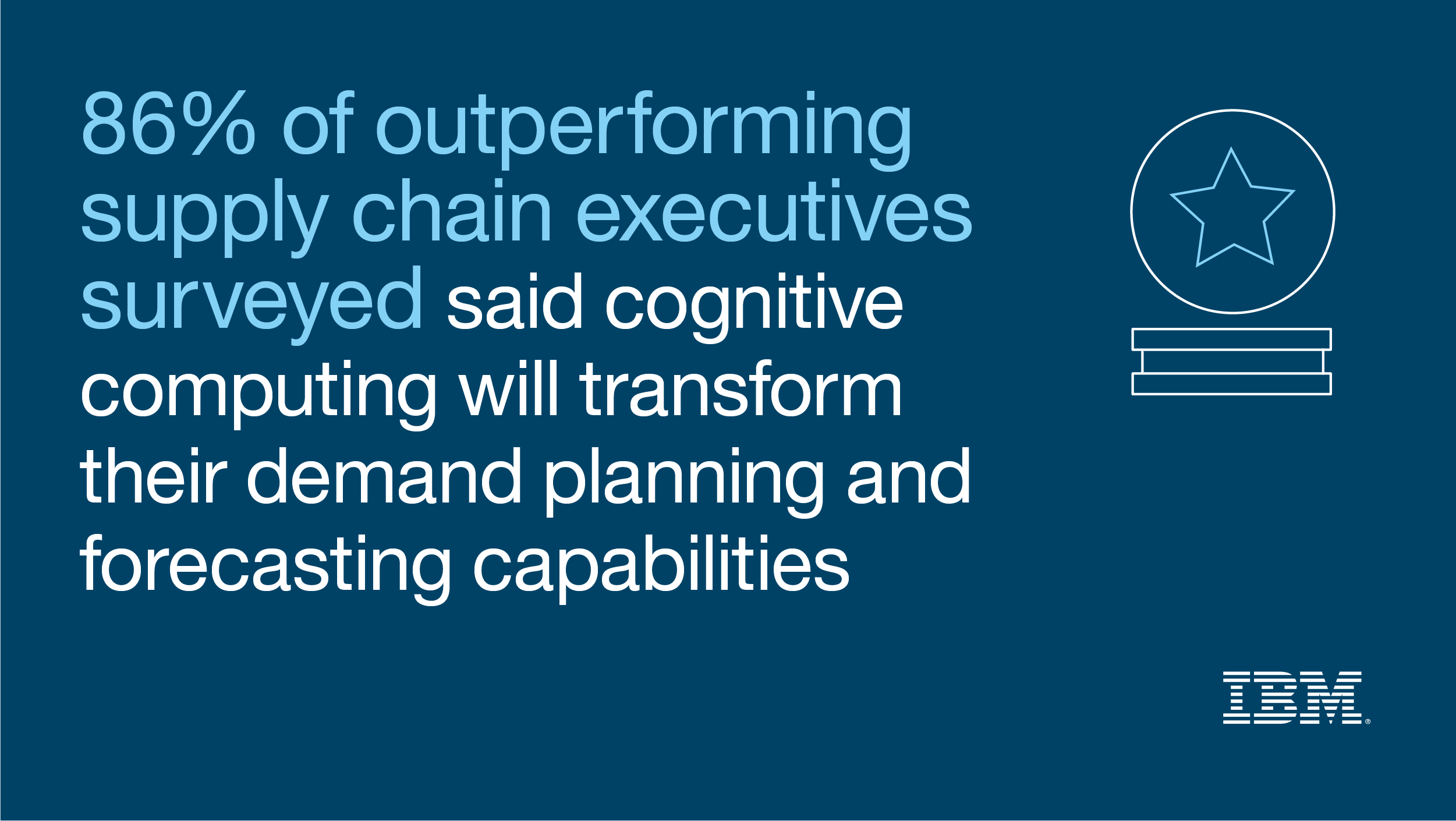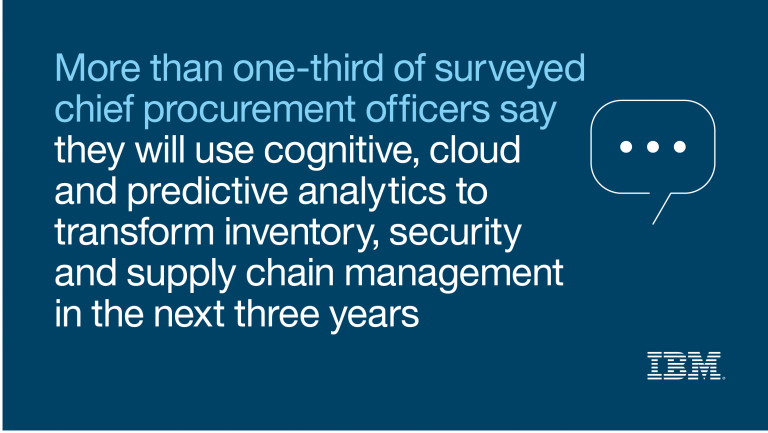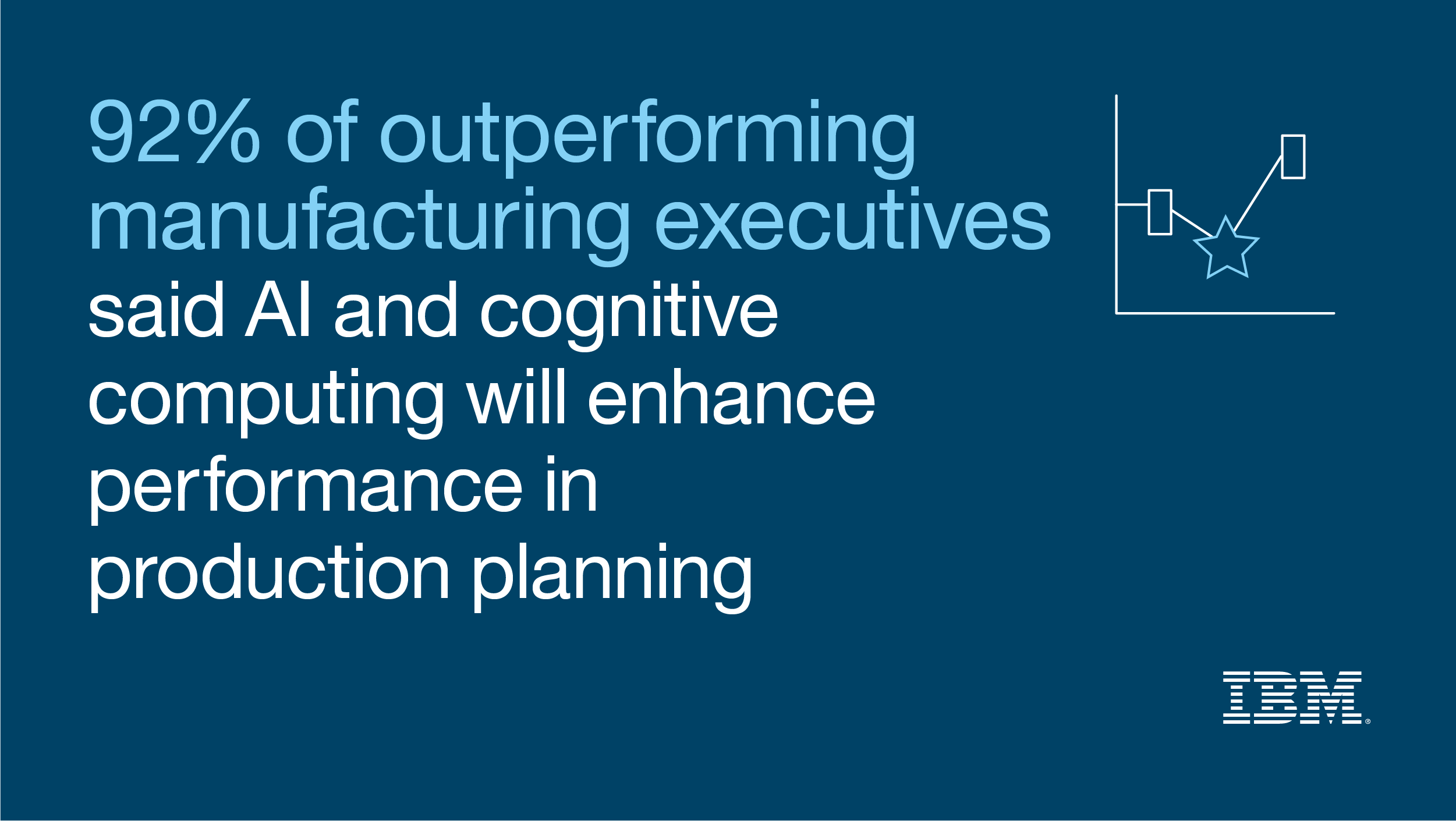The futuristic renderings of science fiction have become reality: Robotic likenesses are now automating and instrumenting a learning supply chain.
Artificial intelligence (AI) is making sense of the deluge of operational data from a plethora of devices and cloud applications. This technology also applies advanced mathematics to create products, processes and systems that can adapt and learn.
Cognitive and AI can rapidly revolutionize the supply chain, and executives are starting to notice. Adaptive robotics act on Internet of Things (IoT) device information and a multitude of structured and unstructured data to learn and make autonomous decisions. Natural language processing (NLP) tools understand human speech and react to what they are being told. Predictive analytics can improve demand responsiveness, inventory and network optimization, preventative maintenance and digital manufacturing. Search and pattern recognition algorithms – which are no longer just predictive, but hierarchical – analyze real-time data, helping supply chains to react to machine-generated, augmented intelligence, while providing instant visibility and transparency.
To better understand the impact of AI and cognitive computing solutions on supply chain and operations, researchers working with the IBM Institute for Business Value surveyed more than 1,600 senior operational executives across a wide range of industries and geographies. They told us about their cognitive and AI priorities and the value that they expect to derive. Here are some of the key takeaways from those conversations:
Supply chain is a natural fit for AI
We identified a group of more than 700 outperformers (12 percent of the total sample) with stronger financial performance than their peers. These companies reported annual revenue growth and profit increases of more than 5 percent over the past three years. We ranked public sector organizations based on effectiveness and efficiency.
Eighty-eight percent of the highest performing organizations surveyed report that AI is inevitable in their industry. Among those polled, 95 percent of the highest performing organizations see AI as central to their innovation success.

Cognitive and AI can enable innovative product development
Across industries, executives face many challenges in getting the right product to the right customer at the right time. To deliver innovative products, they must combine capabilities from new technologies such as IoT and robotics with enterprise cloud applications. Sales and operations planning is the ultimate collaborative decision-making process. Companies can apply AI technologies to sales and operations planning and other massive supply chain data pools to manage demand volatility, supply constraints, production scheduling and dynamic distribution. AI also can augment human interaction by allocating resources, assigning people and scheduling processes.

Companies could benefit from intelligent procurement
Chief Procurement Officers (CPOs) are concerned about maintaining the health of their global supply chain networks, which face added pressures of regulations and security risks. Simultaneously, they must transform their operating models for revenue growth. But their organizations can uncover and leverage data buried among contracts, transactional systems and regulators to create intensified procurement insights. By using cognitive computing capabilities to parse through unstructured data, such as news feeds and social networks, companies can augment learning for supply risk scoring and supplier performance. Cognitive technologies can enable the comprehensive visibility that provides true insight into supply chain disruptions and risks.

Learning and automated manufacturing are the future
Manufacturing executives work hand-in-hand with product developers to deliver innovative products and increase growth and profitability. They also are rapidly implementing IoT and cloud, and advancing into the automation technologies of adaptive robotics. Now, the industry is ready for its next automation breakthrough: using AI to make production decisions in real time.

Thinking and learning, supply chains can be trained to augment and enhance human decision making and bring about a new level of operational excellence. To learn how your organization can start its cognitive and AI journey, read our full report.
Meet the author


